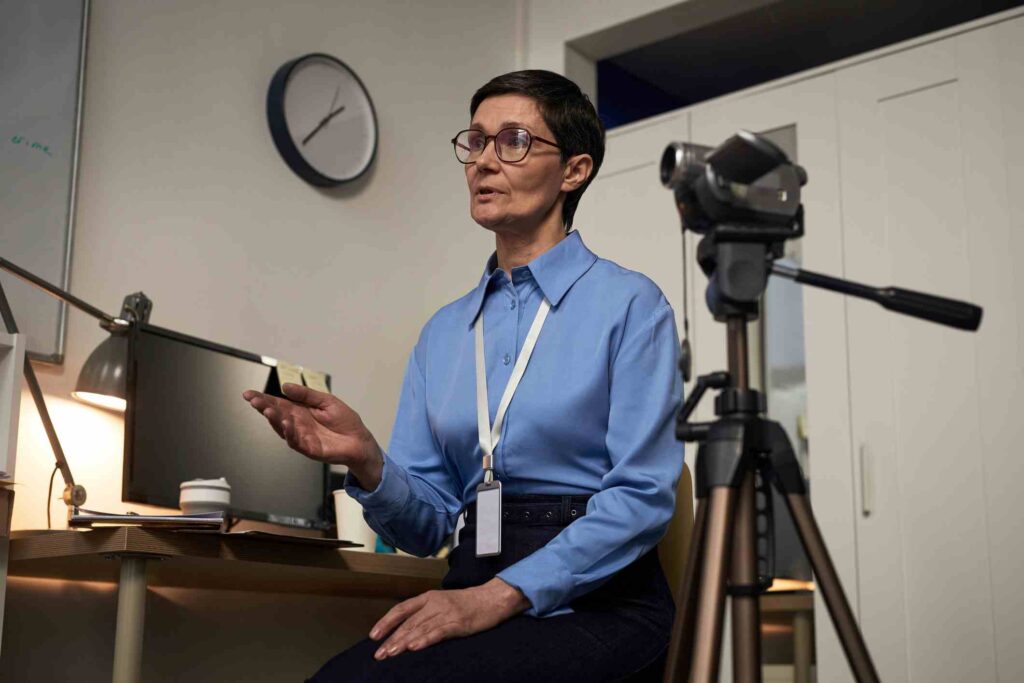Why Legal Video Services Are Essential for Modern Litigation

Video has become one of the most powerful tools in modern courtroom and deposition settings. What was once an expensive add-on is now a practical necessity for law firms that want to work efficiently, keep costs down, and present evidence clearly. Legal video services now support nearly every phase of litigation, from discovery and depositions to hearings and trials. The growing reliance on deposition recordings and court videography is changing how attorneys prepare, present, and win cases.
Why Remote Video Depositions Are the New Standard
A decade ago, recording a deposition on video was reserved for high-stakes cases or expert witnesses. The added costs of hiring a videographer and paying travel expenses—on top of the standard court reporter’s fees and transcript costs—often made video depositions impractical. This has changed dramatically in the past few years as technology has caught up with the legal industry’s needs.
Here’s what has fueled the shift to video-based proceedings:
- Remote technology became more reliable: During the pandemic, attorneys needed a way to continue taking depositions without meeting in person. Video conferencing providers quickly improved their platforms to handle the demands of legal proceedings.
- Technology costs dropped: Modern software and recording tools make it easy to capture high-quality video directly through online platforms. The equipment, storage, and bandwidth that once required expensive setups are now available at a fraction of the cost.
- Budgets tightened: Clients expect their legal teams to control costs. Remote video depositions reduce travel, hotel, and setup expenses to help keep litigation budgets in check.
- Legal video services have evolved: Many court reporting agencies now offer integrated solutions that include video capture, synchronized transcripts, and secure digital storage. This streamlined approach gives legal teams everything they need in one package.
Benefits of Legal Video Services
Capturing witness testimony on video conveys everything they say, and, just as importantly, how they say it. Here’s what makes legal video services so beneficial to your case:
- Flexible participation: When witnesses or experts live across the country, travel costs and logistics present a roadblock. Remote video depositions eliminate these barriers.
- Better understanding: Video captures facial expressions, gestures, tone, and posture—details that the written word alone can’t convey. The visual and emotional context adds depth and transparency to every piece of testimony.
- Streamlined preparation: Attorneys and paralegals can review specific sections of a deposition to pinpoint statements, inconsistencies, or admissions. The ability to review footage remotely speeds up trial preparation and simplifies collaboration among team members.
- Instant access to synchronized transcripts: Timestamps and searchable transcripts allow legal professionals to jump directly to key moments in the video, saving hours of manual review.
- More engaging presentation: Legal video services help attorneys present evidence in a way that resonates with judges and juries. Seeing a witness’s reaction or hearing an expert’s tone can sway opinions and help jurors connect to the story behind the evidence.
The Future of Legal Video Services for Modern Litigation
As the legal industry continues to evolve, video services are expected to become even more sophisticated and accessible.
For starters, artificial intelligence is already speeding up transcription processes and automating deposition summaries. Soon, AI may analyze tone, sentiment, and context within deposition videos to help identify inconsistencies or emotional cues that could influence a case.
Real-time translation tools are also expected to speed up and improve the accuracy of multilingual proceedings. Then, enhanced encryption will continue to keep confidential footage secure when shared online.
These developments point to a future where modern litigation with video is the norm. Legal video services will continue to streamline workflows, reduce costs, and improve how legal professionals manage evidence. The question is no longer whether to use video—it’s how to use it most effectively.
How to Choose the Right Legal Video Services in San Jose
Selecting the right partner for deposition recording or court videography sets you up for success. Look for a provider that offers integrated services, uses up-to-date recording equipment, and understands the nuances of in-person and remote proceedings.
A dependable provider should offer the following:
- Experienced videographers who understand legal protocol and confidentiality
- High-quality video and audio production suitable for courtroom playback
- Seamless transcript synchronization for easy review and reference
- Flexible scheduling options for remote or hybrid depositions
- Secure digital delivery and storage systems for sensitive materials
Talty Court Reporters meets all of these expectations and more. We have been the guardians of the record since 1964, and today we leverage advanced technology to simplify the deposition and litigation process. When you choose us, expect unwavering reliability, precision, and a genuine understanding of how legal videography fits into modern litigation.
Strengthen Your Case with Modern Legal Video Services
At Talty Court Reporters, we utilize the latest technology to deliver the very best results in your legal case. Turn to us for top-quality court reporting and transcribing services, video and audio conferencing, remote depositions, and much more. For additional information about our services or to request a cost estimate, please contact us today.